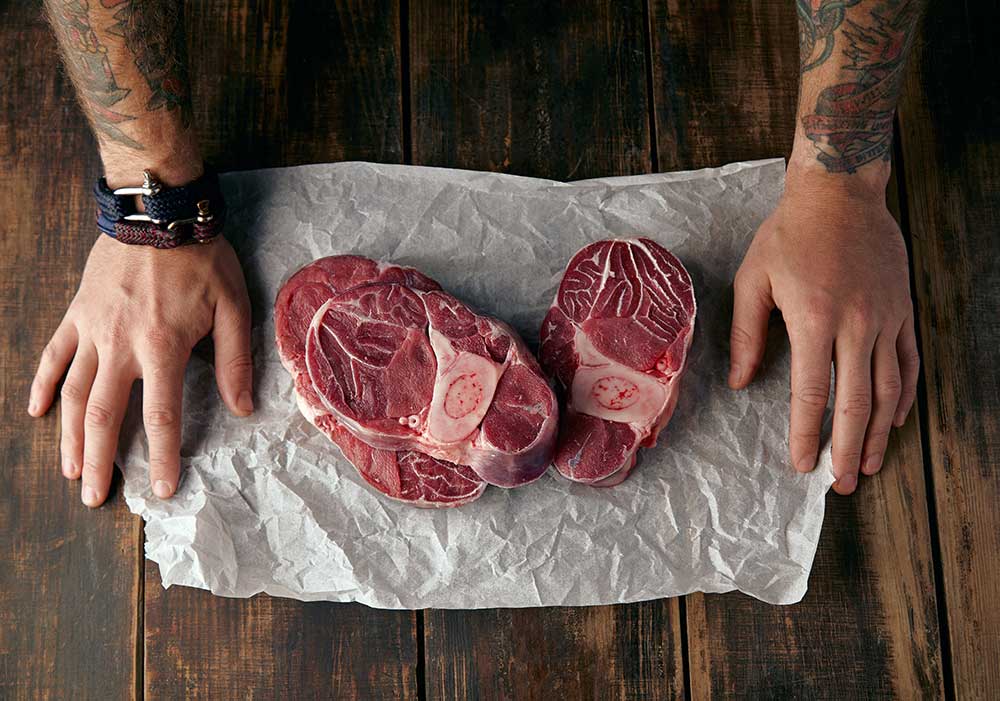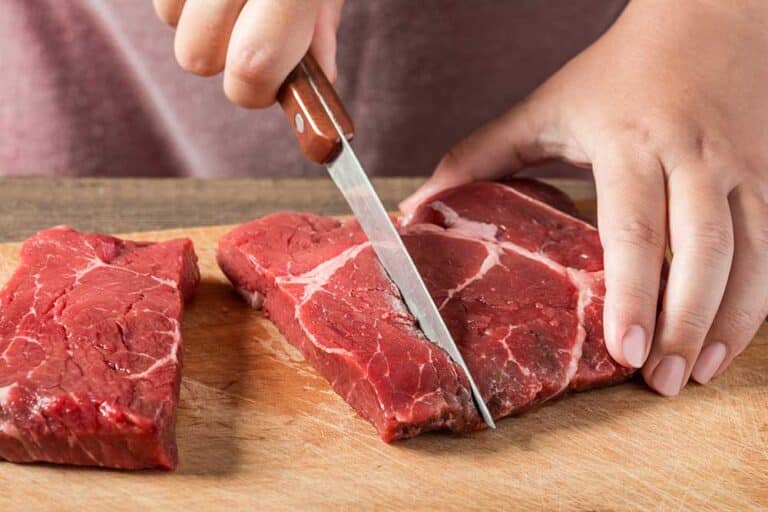Understanding the Carnivore Diet
Basics of the Carnivore Diet
The carnivore diet is an extreme dietary regimen that eliminates all food groups except meat and animal products. Followers of the diet consume only meat, fish, eggs, and small amounts of low-lactose dairy products. This diet is sometimes referred to as the ultimate elimination diet due to its stringent restrictions.
Typical Foods Allowed:
- Beef, lamb, pork, poultry
- Fish and seafood
- Eggs
- Low-lactose dairy like butter and hard cheese
For detailed information on what you can eat, visit our carnivore diet foods list.
Who Should Avoid the Carnivore Diet
While the carnivore diet might offer certain benefits, it is not suitable for everyone. Specific populations should avoid this diet due to its restrictive nature and potential health risks.
Populations at Risk:
- Individuals with Chronic Kidney Disease: High protein intake can aggravate kidney issues.
- People Sensitive to High Cholesterol: The diet’s high fat content can impact cholesterol levels.
- Children and Adolescents: Growing bodies need a variety of nutrients, which this diet lacks.
- Pregnant or Lactating Women: Nutrient needs increase during these periods.
- Individuals with a History of Disordered Eating: The restrictive nature may trigger unhealthy eating patterns.
A balanced diet with a variety of healthy foods is considered more sustainable and likely provides more health benefits. For those considering the carnivore diet, it’s essential to understand the carnivore diet side effects and consult a healthcare professional.
By understanding these aspects, you can navigate the potential benefits and risks associated with this controversial eating plan. For more information on crafting a meal plan, visit carnivore diet meal plan.
Potential Benefits of the Carnivore Diet
The carnivore diet, which consists solely of animal products, has gained attention for its various potential benefits. Here we explore the impacts on weight loss, diabetes management, and athletic performance.
Weight Loss Effects
Many individuals have reported significant weight loss while following the carnivore diet. Studies have shown substantial reductions in body mass index (BMI) among participants who transitioned to this diet. The high protein and fat content in meat can increase satiety, leading to reduced caloric intake. For more information on how the diet influences weight, check our guide on carnivore diet weight loss.
| Metric | Before Carnivore Diet | After Carnivore Diet |
|---|---|---|
| Average BMI | 27.3 | 24.5 |
| Average Weight (lbs) | 180 | 160 |
Impact on Diabetes Management
The carnivore diet has shown promising results in managing diabetes. A study with 262 participants diagnosed with type 1 or type 2 diabetes revealed remarkable outcomes. Among those with type 2 diabetes, 84% discontinued oral diabetes medications, while 92% ceased insulin use after adhering to the carnivorous eating plan for nine to 20 months. These findings suggest that the diet might help stabilize blood sugar levels.
For more insights, read our article on what can you eat on the carnivore diet.
Athletic Performance Enhancement
Proponents of the carnivore diet claim that the high protein intake aids in muscle repair and growth, potentially enhancing athletic performance. While scientific evidence is still limited, anecdotal reports from athletes suggest improved energy levels and endurance. Proteins from animal sources provide essential amino acids required for muscle function and recovery.
Athletes following this diet emphasize the importance of selecting quality meats and maintaining proper hydration. For meal ideas that suit an active lifestyle, check our carnivore diet recipes.
These benefits underline why the carnivore diet is gaining popularity among various health-conscious individuals. However, like any dietary regimen, it is crucial to be aware of potential risks and to consult with healthcare providers. For more comprehensive details on transitioning to a carnivorous eating plan, explore our carnivore diet meal plan.
Drawbacks of the Carnivore Diet
While the carnivore diet has gained popularity for its potential benefits, it is crucial to consider its drawbacks. These include nutritional deficiencies, associated health risks, and environmental and ethical concerns.
Nutritional Deficiencies
The carnivore diet is highly restrictive, eliminating all plant-based foods and, therefore, certain essential nutrients. Consequences include:
Lack of Fiber: Without fruits, vegetables, legumes, and whole grains, the diet provides no fiber, leading to potential issues like constipation and gut health concerns (Healthline).
Micronutrient Deficiencies: Certain vitamins and minerals, like Vitamin C, Vitamin E, and magnesium, are largely found in plant-based foods and may be deficient in a carnivorous diet. Diets rich in plant-based foods have been associated with a lower risk of conditions like heart disease, certain cancers, Alzheimer’s, and type 2 diabetes (Healthline).
| Nutrient | Key Sources Excluded in Carnivore Diet | Potential Health Issues |
|---|---|---|
| Fiber | Fruits, Vegetables, Legumes, Whole Grains | Constipation, Gut Health Concerns |
| Vitamin C | Citrus Fruits, Berries, Leafy Greens | Scurvy, Poor Immune Function |
| Magnesium | Nuts, Seeds, Leafy Greens | Muscle Cramps, Fatigue |
More information on suitable foods can be found in our carnivore diet foods list.
Health Risks Associated with the Diet
Adhering to the carnivore diet can pose several health risks:
High Protein Intake: Long-term consumption of high levels of protein may result in an increased risk of kidney stones, gout, and osteoporosis. It may also impair kidney function (Harvard Health Publishing).
Elevated Saturated Fat: The carnivore diet is high in saturated fats, which can elevate the risk of heart disease for some individuals.
Increased Risk of Certain Cancers: Diets high in red and processed meats may increase the risk of certain cancers, particularly colorectal cancer. Excessive consumption of animal products can also lead to elevated LDL or “bad” cholesterol levels, raising the risk of heart disease (Dr. Marc Method).
For further insight, refer to our article on carnivore diet side effects.
Environmental and Ethical Concerns
The environmental and ethical implications of the carnivore diet include:
Environmental Impact: The carnivore diet’s emphasis on animal-based products can significantly strain the environment. Livestock farming requires substantial water and land use, and it contributes to greenhouse gas emissions.
| Environmental Factor | Animal-based Diet Impact |
|---|---|
| Water Use | High |
| Land Use | High |
| Greenhouse Gas Emissions | Significant |
Ethical Issues: The increased demand for animal products raises ethical concerns regarding animal welfare. Many people consider the treatment of animals in intensive farming systems to be problematic.
Considering these drawbacks is crucial for making informed decisions about dietary choices. Understanding both the benefits and the potential harms can lead to a more balanced approach to nutrition.
For more detailed guidance on how to implement this diet, see our guide on carnivore diet meal plan.
Comparing the Carnivore Diet with Other Diets
Exploring how the carnivore diet stacks up against other popular diets can shed light on its unique characteristics and potential benefits. Here, we will compare the carnivore diet with the keto diet and the paleo diet.
Carnivore Diet vs. Keto Diet
The carnivore diet and the keto diet both emphasize the reduction of carbohydrates but differ significantly in their approach and foods allowed.
| Feature | Carnivore Diet | Keto Diet |
|---|---|---|
| Focus | Solely on animal products | High-fat, low-carb |
| Main Foods | Meat, fish, eggs, animal fats | Meat, fish, eggs, dairy, low-carb vegetables |
| Carb Limit | Zero carbs | Typically less than 50g per day |
| Ketosis | Not specifically aimed at ketosis | Designed to induce ketosis |
| LDL Cholesterol Concerns | Yes, due to high intake of saturated fats | Yes, similar concerns with high intake of saturated fats (Harvard Health Publishing) |
The carnivore diet’s exclusive focus on animal-based foods means followers consume no carbs at all, while the keto diet allows some low-carb vegetables and dairy to maintain a high-fat, low-carb balance aiming to induce ketosis for metabolic benefits. Both diets can elevate LDL cholesterol levels due to saturated fat intake but can also result in weight loss and improved metabolic health.
For an in-depth meal planning guide, visit our article on carnivore diet meal plan.
Carnivore Diet vs. Paleo Diet
The paleo diet and the carnivore diet both draw inspiration from ancestral eating patterns but diverge substantially in their food inclusivity and nutritional philosophy.
| Feature | Carnivore Diet | Paleo Diet |
|---|---|---|
| Focus | Solely on animal products | Whole foods; mimics ancestral diet |
| Main Foods | Meat, fish, eggs, animal fats | Meat, fish, eggs, fruits, vegetables, nuts, seeds |
| Excludes | All plant-based foods | Dairy, grains, processed foods |
| Nutritional Variety | Very limited | Diverse and nutrient-rich |
| Reported Benefits | Weight loss, improved diabetes management | Increased energy, improved overall health (Beck and Bulow) |
The carnivore diet is extremely restrictive, focusing entirely on animal products, while the paleo diet includes a variety of whole foods, excluding only dairy and grains (Beck and Bulow). Followers of the paleo diet report benefits such as increased energy levels and overall health improvement, benefits that are more varied due to the diverse range of nutrient-rich foods consumed.
To dive deeper into suitable foods, check out our list of carnivore diet foods list.
Comparing the carnivore diet with other popular diets reveals both its unique aspects and the potential advantages it may offer. For those considering this dietary approach, it’s crucial to understand the distinctions and make an informed decision about which diet aligns best with their health goals. For more detailed insights on benefits and potential side effects, visit our comprehensive guides on carnivore diet benefits and carnivore diet side effects.
Research and Evidence on the Carnivore Diet
Existing Studies on the Carnivore Diet
Research on the carnivore diet is still in its infancy, with a lack of well-controlled studies supporting its health claims (Healthline). The diet focuses exclusively on meat and animal products, eliminating all plant-based foods which might lead to potential nutritional imbalances. Despite this, there are some studies and anecdotal reports that suggest potential benefits, primarily in weight loss and management of blood sugar levels.
One notable study with over 2,000 participants suggested that many individuals with diabetes managed to decrease or stop their diabetes medication while on the carnivore diet. However, the study lacked precise dietary information and health measurements, highlighting the need for more rigorous research to substantiate these initial findings.
Criticisms and Concerns
The carnivore diet has sparked criticism due to its restrictive nature and potential health risks. It eliminates all plant-based foods, thus lacking essential fiber and beneficial plant compounds like antioxidants. This can lead to increased risks of nutritional deficiencies and associated health issues.
The diet is also high in fat, particularly saturated fat, which may pose risks for heart health and other conditions if not monitored carefully (Healthline). Furthermore, the exclusion of diverse food groups raises concerns about the diet’s long-term sustainability and adherence.
| Criticisms | Concerns |
|---|---|
| Lack of fiber and plant compounds | Potential nutritional deficiencies |
| High in saturated fat | Heart health risks |
| Highly restrictive and hard to maintain | Long-term sustainability |
Anecdotal Reports vs. Scientific Evidence
While many individuals report positive outcomes like improved energy levels, weight loss, and better management of certain health conditions on the carnivore diet, these anecdotal reports do not substitute for scientific evidence. Anecdotal success stories often lack the rigorous controls and variables necessary to establish causation rather than correlation.
Scientific studies follow stringent protocols to eliminate biases and external influences, providing more reliable data. While anecdotal evidence can be compelling and offer insights, it is essential to consider it alongside scientific research to get a comprehensive understanding of the diet’s impacts.
For more information on specific concerns like potential nutritional deficiencies and health risks associated with the diet, visit our article on carnivore diet side effects.
- About the Author
- Latest Posts
Johnnie D. Jackow Sr., the founder and CEO of Total Body Fitness, Worldwide, has a long-standing career in the fitness industry. He began as a certified personal trainer in the mid-90s and soon after authored his first weight loss book in 1998. This led to the launch of Total Body Fitness, Nationwide in the USA at the same time. Johnnie gained recognition as the fitness guru of his time, running infomercials on local TV late at night in Houston, Texas. Over the years, he has helped more than 40,000 individuals from all over the world achieve their health and fitness goals. With over 60,000 hours of documented training in integrative functional medicine, he completed his PhD in human physiology in 2010. His primary objective is to assist people in reaching their health and fitness goals through alternative approaches rather than relying solely on conventional medicine and pharmaceutical drugs. Today, with almost three decades of experience under his belt, Johnnie continues to be a leader in health and fitness.








